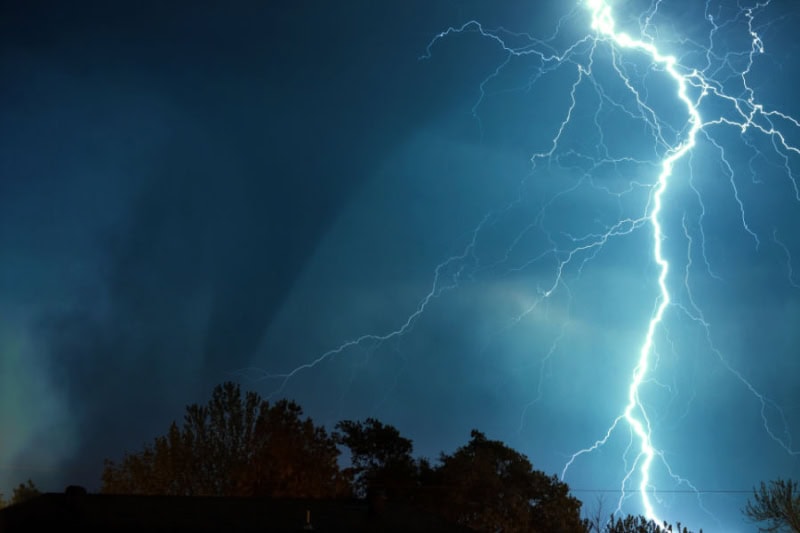How Do I Prepare My HVAC System for a Hurricane?

Thankfully, it’s been a few years since we experienced a major hurricane in Louisiana. But that does not mean you should be lax about being prepared in the event of another one.
With Atlantic hurricane season officially running from June 1 through November 30, you need to always have a plan––of what to do before, during, and after the storm. And though it may not be at the forefront of your plans, it’s important to know what to do about your heating, ventilation, and air conditioning (HVAC) system for hurricane readiness to help minimize damage.
Your HVAC system is a major investment, and you want to do whatever is feasible to protect it from possible hurricane damage. Our team at Dave Broussard wants to share the steps to take to keep your Lafayette, home as safe as possible during hurricane season.
What to Do Before a Hurricane
Even prior to hurricane season, there are steps you can take for your HVAC system:
Schedule your HVAC maintenance.
As an HVAC system owner, you should already be doing annual maintenance on your system—both your heating and cooling systems—to keep it all working well.
It’s smart to have your air conditioner maintained before hurricane season arrives. During the appointment, one of our professional technicians will tighten any loose components and make sure everything is battened down. You can also ask our expert to repair any areas where water might seep in and cause damage.
Take care of yard work.
In addition to your normal yard routine, assess your trees and shrubbery. If there are any loose or old branches that could break during a strong wind, be sure to remove them.
The same holds for any vegetation that’s near your equipment. Take care to remove it from the vicinity so it won’t break and damage your outdoor components.
Consider investing in a backup generator.
If your power is out after a storm, a generator will help get you through until your power is back. Most generators are installed with strong storms in mind, utilizing enclosures and housing units that protect them during severe weather.
According to the Occupational Safety and Health Administration (OSHA), place your generator outside in an area where it has three to four feet clearance on all sides for proper ventilation for safety reasons.
These days, hurricane forecasters are really good at predicting hurricanes. In most cases, you’ll know if a hurricane is arriving in advance. Here are some steps we recommend:
Invest in either hurricane straps or metal brackets to secure your outdoor unit.
Some Lafayette, homeowners prefer a protective cage for more security. As you know, hurricane winds are quite strong, and you want your equipment to stay put with as little damage as possible.
Double-check your equipment’s immediate vicinity for debris.
With extreme winds, almost anything can be airlifted and cause damage. Be sure to remove any bigger/heavier vegetation or items near your unit for safety reasons.
What to Do During a Hurricane
Of course, during a hurricane, your immediate priority is your personal safety. But while a hurricane is a day or so away (or before you evacuate if leaving sooner than that), we recommend you:
Turn your air conditioner on high for a couple of hours prior to turning it off.
Many times during a hurricane, you’ll lose power. Turning the temperature down lower than normal for a while will cool your home and help keep it cool during your power outage.
Cover your outdoor equipment with a tarp and bungee cord.
If you have the time and materials, board the unit up completely to protect it from water and debris. This may help keep water, silt, and debris out and protect your system.
Turn off your HVAC system.
Better yet, turn off the power to your system. This will protect your system from any electrical surges that could occur during the storm.
Turn off your gas if you’re evacuating.
This helps to prevent leaks from occurring.
HVAC Maintenance After a Hurricane
Immediately following a hurricane, perform an inspection of your home and any damage that may have occurred. Once immediate damage and dangers are addressed, evaluate your HVAC system:
- Remove any blown debris from the outdoor system’s immediate vicinity. Assess for any damage.
- Remove the protective tarp or covering from the outdoor system. Access for any damage.
- Check water levels if flooding occurs. Do not turn systems on if your indoor or outdoor units are standing in water. Call one of our professionals to assess the level of water damage and for guidance on water removal. If your systems are not standing in water but were affected by water, call one of our experts to come out.
- Call your insurance company if necessary. Report any damage from the hurricane to your insurance company as soon as possible.
- Have patience. Remember, your neighbors are in the same situation, so finding professional help will be in high demand everywhere. You want them all to do their jobs in a timely manner, but you also don’t want them to take any shortcuts just to appease the volume of requests. Shortcuts lead to mistakes and oversights.
Contact Us Now for Help Preparing Your Home Systems
Following a hurricane, everyone’s working to restore life to normal. As frustrating as it may be, keep this in mind and use patience. Call our professionals at 337-221-0574 to help you at Lafayette, LA, or request service online. You can count on us at Dave Broussard to help you through an emergency, so call us for any of your HVAC needs here in the area.

